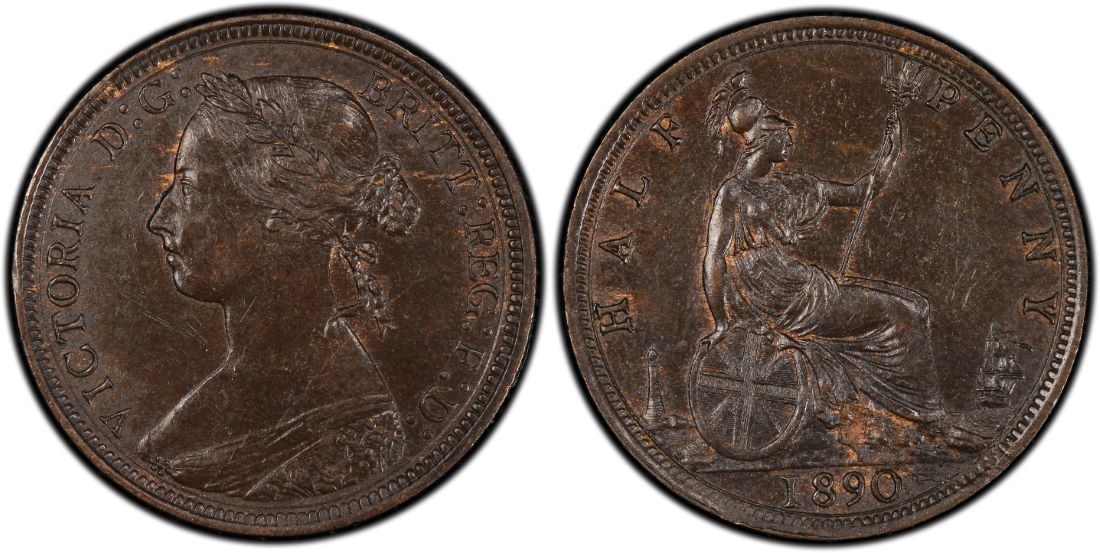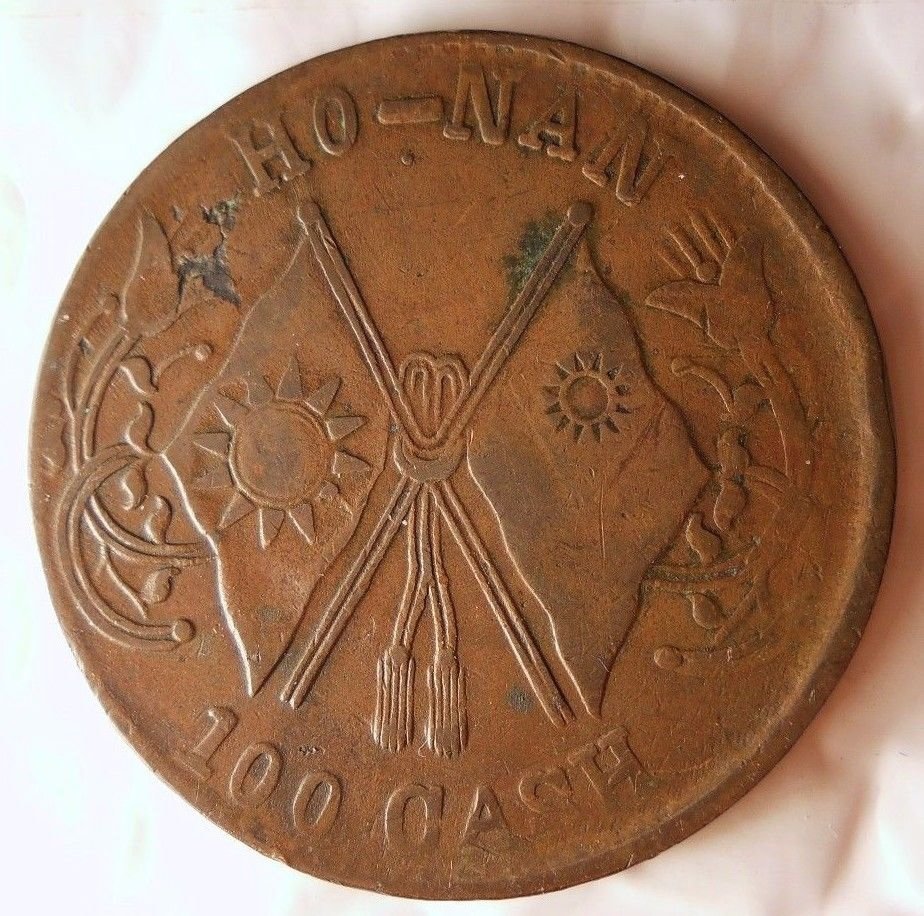Why is a planchet problem a Details grade offense?
 coffeyce
Posts: 1,050 ✭✭✭
coffeyce
Posts: 1,050 ✭✭✭
This is something that i have always wondered about. Why would a planchet problem be lumped into the Details catagory, when everything else would be a post mint problem. Yet other mint errors/problems get a straight grade?
Even adjustment marks which can be ugly get a straight grade.
Some are almost un-noticeable.
Based on the TPG`s detail grades are for damage and altering of coins post minting with this exception.
Does anyone have any reason why this would be?
1
Best Answer
-
 georgiacop50
Posts: 2,909 ✭✭✭✭
georgiacop50
Posts: 2,909 ✭✭✭✭
There are no guidelines. Just inconsistency. And anybody thinks you are going to get a definitive answer from a Customer Service rep. is pretty naive.
Each coin with a planchet defect is decided upon case by case...thus there is no consistent treatment of them.
5
Answers
It's not always the case. I recall an old ANACS graded paper cert of XF on a $5 bust gold. That was net graded for a lamination on the face. PCGS 20 years later straight graded it MS62. The coin was marvelous. Without that slight flaw it would have been a 63/64 coin.
here I will post an example
PCGS Coin Information
PCGS # 201543

Date, mintmark 1890
Denomination 1/2D
Variety S-3956
Country Great Britain
Grade Genuine AU Details (93 - Planchet Flaw)
Holder Type PCGS Secure
then you have foreign coins that have lack of mint QA and flaws similar to this are in circulation?

so why would a mint problem become a (details) it seems almost contradictorily.
That is a good question...colonials often have planchet flaws yet are straight graded. Maybe more is expected out of more modern coins made with better equipment? IMO MS is as minted, planchet flaws or not.
K
Might be worth a call to customer service...it clearly is called a planchet flaw, so it would be interesting to know what the guidelines are for when it is straight graded and when not. Cheers, RickO
You can get a straight grade if you have the coin assessed as an error. E.g., this cent was generously straight-graded MS66, "Attached Lamination Obv". The cert# is 21891107 and the PCGS coin type is E2450.
Lance.
I was looking at a Bust 50c that was probably a 55-58 but with a reverse planchet flaw, the dealer thought that would preclude a numerical grade, I'm not sure.
Here is a Morgan that did not straight:

Good question...one which I guess I've never really thought about before. As noted above, you see a bunch of colonials with planchet issues in straight graded holders. Not just circulated examples either, plenty of mint state graded colonials have planchet issues (fugios in particular come to mind).
I agree. I once owned a 1925 Peace dollar in a MS66 holder that had a faint but clearly visible 1/2 inch planchet lamination/crack. I should have kept it. The coin was otherwise superb. They're very lenient with early copper and colonials.
If I was collecting by grade, I certainly wouldn't want a coin with a planchet flaw. Maybe instead of a details grade, they should be net graded, taking the planchet flaw into consideration.
sometimes a planchet problem evolves into not-a-planchet problem.
NGC 63 half dime sent to PCGS for cross failed to cross (at any grade, please) due to planchet problem (Lamination). OK.
Sent a second time for cross at any grade. Crossed at 61. No mention of lamination on label.
CAC gold sticker now.
If planchet flaws were an automatic ticket to problem-holder-land, Vermont Colonials would never straight grade.
Dead Cat Waltz Exonumia
"Coin collecting for outcasts..."
Grades for regular issue U.S. Coins (1792 and up) are expected to have a "generic" aspect to them. Many collectors regard major planchet problems as a negative. When I bought a high grade (AU-58) 1795 half cent with a very minor planchet clip, I did not want the to be marked as a mint error because that would have lowered the value. They would get a negative surprise if they bought a coin in a straight grade and then got a "problem coin" even if the problem was mint caused.
Minting problems are usually not a good thing for classic coins.
I sent both our host and NGC the same question. I will post their replies here once recieved.
It's also the US Mint's fault they struck coins with worn out working dies. They're now in MS66 and 67 holders........ignoramus people!
The more qualities observed in a coin, the more desirable that coin becomes!
My Jefferson Nickel Collection
In MHO its pretty naïve not to ask and just assume something. I find customer service to be hit and miss. they just responded back to me today about a coin that was questionable if they grade. doesn't always mean you will like they answer and it doesn't waste much to ask.
Cool piece
If it occurs at the mint a circulation strike should not get a grade ding. It will have an effect on the price when sold. Poor alloy will show after circulation most times and their is where you may well get burned.
Here is the answer from NGC:
Thanks for your question. For the most part NGC grades most planchet errors (laminations, etc.), but in some cases the planchet flaw is more of an Environmental Damage issue thus the net grade.
coffeyce, I would remind you that just because PCGS says they "do" or "don't do" something is no reason to believe that will be the result in the grading room.
It seems the determinations in these cases are as nebulous as grading... no standards.... Cheers, RickO
Send it in as a error and it will straight-grade 99% of the time.
Hoard the keys.
That is a cool piece, but if I were collecting a very choice or Gem Uncirculated set of Lincoln Cents, I won't want it. Collectors who are looking for that kind of quality in a set, don't want a piece that will break the line of perfection or near profection.
Those who collect colonial coins from mints like Connecticut, Machin's Mills, Vermont and even the three New Jersey operations more or less expect to find some sort of mint defect on the coins they acquire. A piece that has no problems is the exception and occasionally a source of concern.
Generally the U.S. Government mints made decent products although some issues are known to often have problems. Even Charlotte and more often, Dahlonega, made nice coins on occasion that were as good as their Philadelphia Mint counterparts. The same could not be said for many colonial mints, especially the mints that made counterfeits.
Actually I do have a near-gem set of Lincoln wheaties. Which is why my enthusiasm drew me to the 1912 above.
But I get what you're saying, Bill. It certainly doesn't belong as the example for the set.
Lance.
Let's say you are looking for the perfect 1912, and you ordered that piece going by the grade on the holder with no mention of the lamaination in the coin's listing. If I were the collector placing that order, I would be disappointed. If I were buying it because I wanted an example of a mint manufacturing problem, that would be another story.